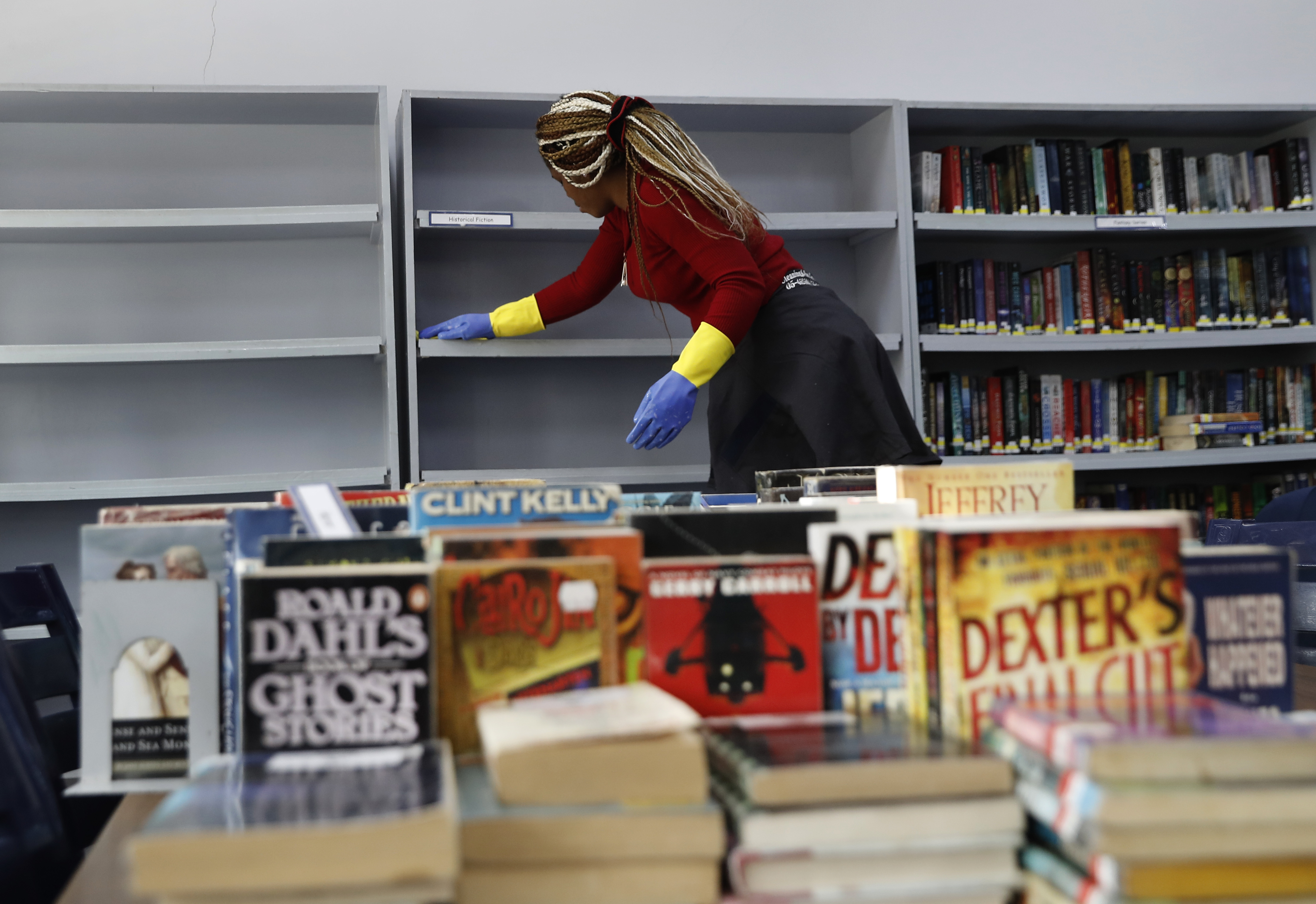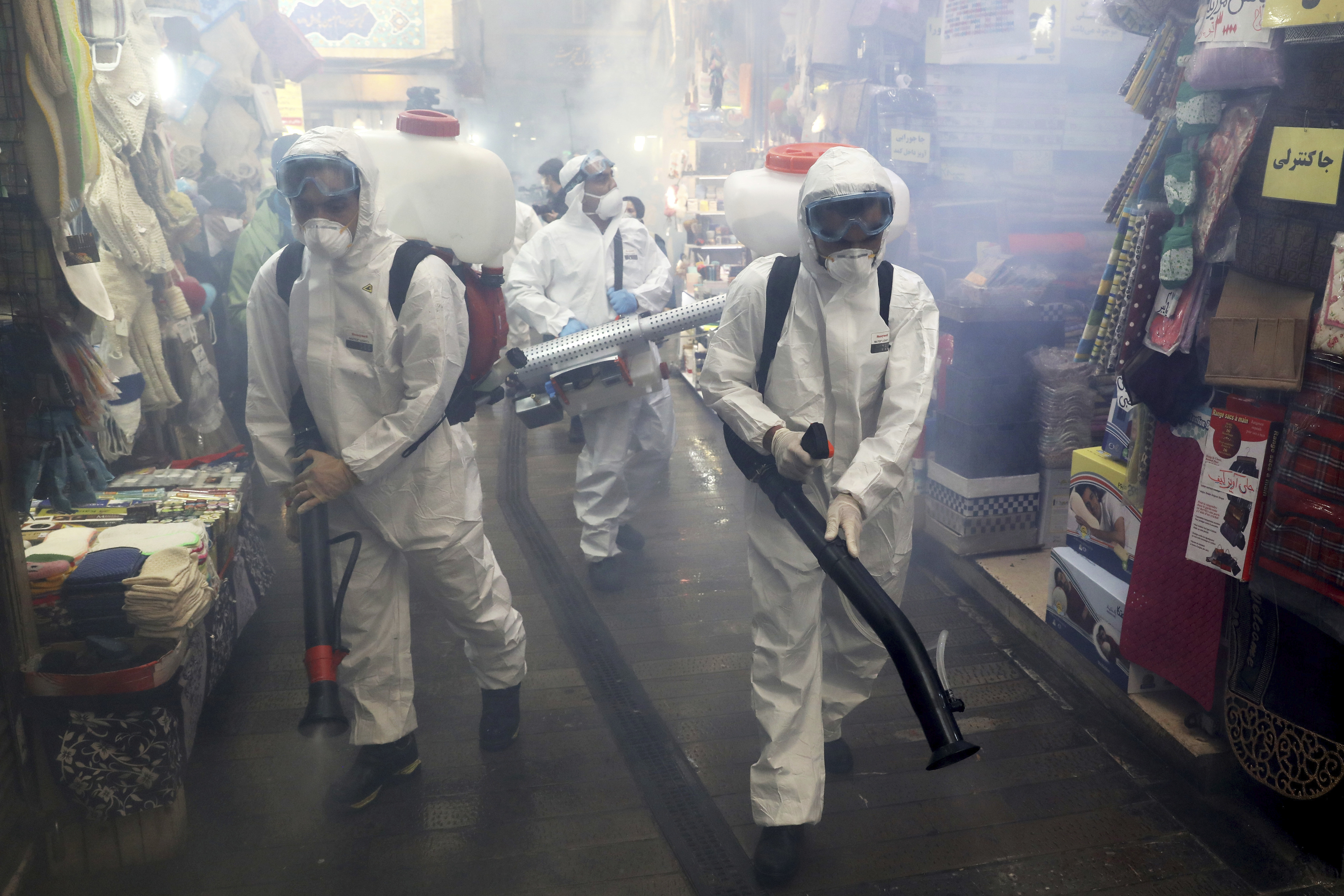What to Know
- Two people have tested positive for the new coronavirus in the Philadelphia suburbs, health officials said Friday. The patients are from Delaware County, Pennsylvania, and Camden County, New Jersey.
- Pennsylvania Gov. Tom Wolf issued a disaster declaration for the state to allow for a quicker response to prevent the spread of the virus.
- A second Pennsylvanian from Wayne County has also tested positive for COVID-19, state officials said.
The Philadelphia region recorded its first two cases of the new coronavirus on Friday with patients testing positive for the virus in Delaware County, Pennsylvania, and Camden County, New Jersey.
Both people are considered presumptive positive for COVID-19, which means local testing came back positive, but that the results must be confirmed by the Centers for Disease Control and Prevention. Samples have been sent to the federal lab.
The Camden County, New Jersey, patient is a 61-year-old man from Cherry Hill. He is currently hospitalized in stable condition at Jefferson Cherry Hill hospital. Officials are checking on those who were in contact with him, including healthcare workers and an EMS transport.
“While we know that any case of coronavirus presents a cause for concern for our residents, we want to emphasize that this case only reemphasizes the need to follow personal hygiene guidelines vigilantly, this should not be a cause for panic and the risk to the general public remains low,” Camden County health officer Paschal Nwako said.
The Camden County man is one of four New Jersey residents who contracted the virus.
In Delaware County, Pennsylvania, a woman is currently under self-quarantine at home after traveling to an area in the United States where coronavirus is present, Delaware County Council member Monica Taylor said during a news conference on Friday.
Dr. Rachel Levine, Pennsylvania's health secretary, said state health officials are tracking down every person the woman was in close contact with recently. They will be put under a 14-day self-quarantine, the time-frame recommended by the CDC.
“They’re aggressively chasing down where this person was, who they had contact with and reaching out to them," Delaware County Emergency Services Department Head Timothy Boyce said of the state's efforts. "Our role is to prevent panic. There’s no need for that, but there is certainly a heightened sense of urgency here in Delaware County now that we do have a presumed case."
Taylor added that county officials have been working with state agencies and the CDC to contain any outbreak. She said cleaning will increase in highly trafficked areas and first responders will be issued face masks if responding to calls where people might have the virus.
The new strain of coronavirus originated in Wuhan, China and spread outwardly. Globally, more than 101,000 people had been infected, according to a Johns Hopkins University dashboard of cases, which aggregates various public health sources. In the United States, 240 confirmed cases have been reported, with 14 deaths.
Symptoms of the coronavirus include fever, cough, muscle pain or fatigue and shortness of breath, according to the CDC. The virus has an incubation period – the time between exposure and the first appearance of symptoms – of about five days.
COVID-19 is spread mainly from person-to-person when droplets from an infected person who coughs or sneezes land on someone else’s nose or mouth or enter their lungs, according to the CDC. It can also be spread when someone touches their own mouth, nose and possibly eyes after coming into contact with a surface that has the virus on it.
To prevent the spread of the virus, the CDC recommends frequently washing hands with soap and water for at least 20 seconds – or using an alcohol-based hand sanitizer with at least 60% alcohol – wiping down dirty surfaces and using the inside of the elbow to cover a cough or sneeze.
Those with the highest risk of contracting the disease are older people with underlying chronic medical conditions like heart, lung or kidney disease, according to the CDC.
Delaware County Senior Medical Advisor Dr. George Avetian added that only essential visits are being allowed at the county nursing home, due to older people’s higher risk of contracting the virus.
COVID-19 Coverage
The woman from Delaware County is one of two Pennsylvania residents who contracted the virus. A resident of Wayne County, which is near Scranton in northeastern Pennsylvania, also tested positive.
Levine, the state health secretary, emphasized that the cases were not community spread, which is when someone becomes ill in a certain area and has “no travel history, no known exposure and we have no idea how they got it.”
Levine said both Pennsylvania patients are adults in "good physical condition."
The Wayne County resident traveled “extensively” in Europe, including in places for which the CDC issued a Level 3 travel advisory, Levine said. The only European country thus far designated as Level 3 – meaning where nonessential travel is discouraged – is Italy. The other countries are China, Iran and South Korea.
While they're under quarantine, state health officials will be contacting the patients daily by phone to monitor their health. Levine said breaking quarantine will be unlawful.
“They are not to be going to work, or to school, or to go out in public or to use public conveyances,” state health department epidemiologist Dr. Sharon Watkins said.
Levine warned that the number of confirmed cases is expected to rise.
“We expect more cases to be confirmed in the upcoming days and weeks, and we want everyone to take action to help prevent the spread of this novel coronavirus, COVID-19,” she said.
Following the announcement of the two presumed cases, Pennsylvania Gov. Tom Wolf issued a disaster declaration for the state. Such a disaster declaration does not release additional funding, but Wolf said it would give officials “the ability to work across agencies” as they combat the outbreak.
“Right now, the emphasis of the plan is mitigation tactics to keep this virus from spreading widely,” Wolf said.
Earlier this week, Pennsylvania began testing for coronavirus at its public health laboratory in Exton. The state currently has the ability to test 20-25 samples a day, but that is expected to dramatically jump to 120-150 daily tests by the weekend, Levine said.
Commercial tests will also soon be available, which will help with detecting possible cases, she said, adding that the state will work with insurance companies to cover the cost for tests.
“We’re going to work to make sure that no one is denied a test that is medically necessary for COVID-19 because of the cost,” she said.
Attorney General Josh Shapiro warned businesses not to price gouge goods that residents may seek out to prevent contracting the coronavirus. His office set up and email address — pricegouging@attorneygeneral.gov — for residents to report potential instances of businesses charging more than 20% for goods that were previously a cheaper price in the past week.
On Friday, President Donald Trump signed an $8.3 billion measure to help tackle the outbreak of the coronavirus in the U.S. after the legislation passed overwhelmingly in both the House and the Senate. The measure will release funds to federal health agencies.
The announcement of positive cases came as five schools in the Central Bucks School District were closed Friday after students and staff were exposed to someone from out-of-state who later was confirmed to have coronavirus. Levine said those cases are not related to the ones in Delaware or Wayne counties.




